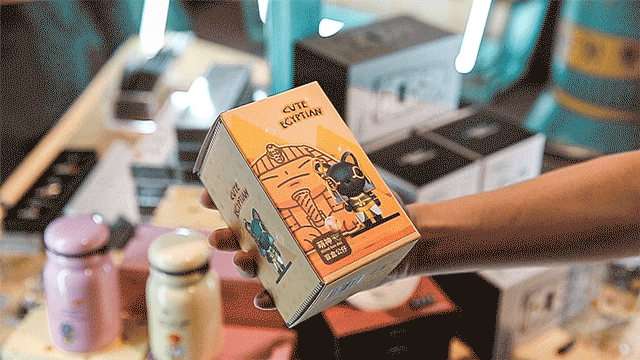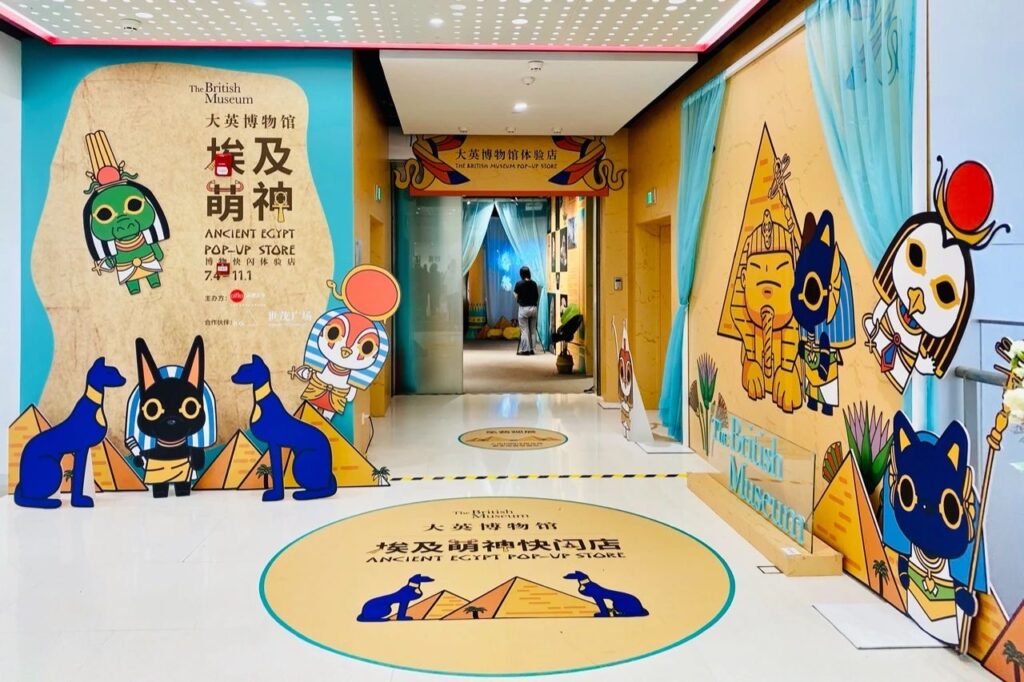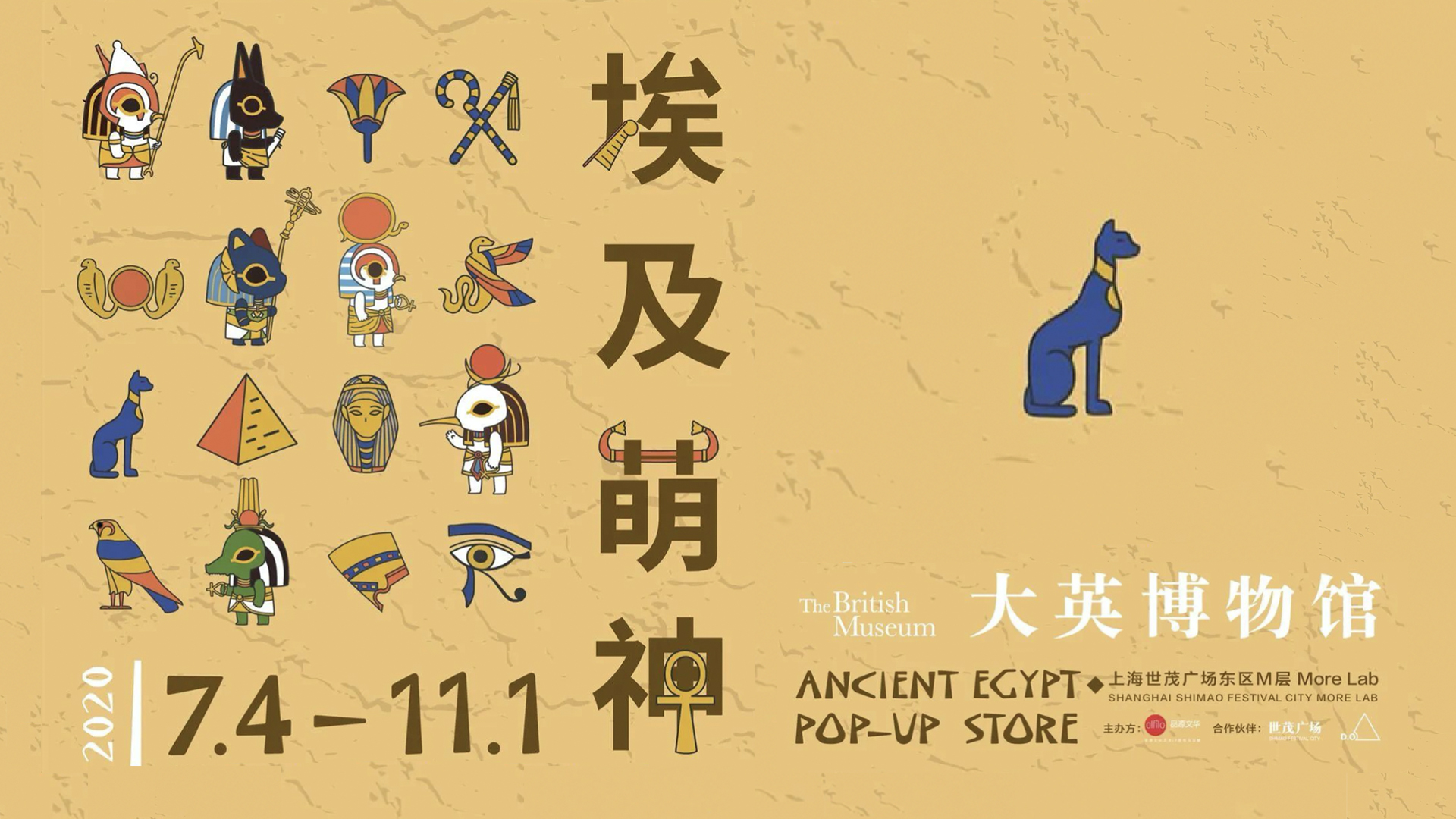Takeaways
- Revenue Recoup. Since 2016, the British Museum has generated revenue by working with Chinese brand licensing experts Alfilo Brands. Having a local partner allowed it to move swiftly and smartly post-lockdown in Shanghai.
- Trend Surfing. The British Museum pop-up taps into two Chinese cultural phenomena; ‘blind box’, the craze of brands selling a mystery product, and ‘punching the card’, the practice of customers proving visits to a popular site, often with a social media post.
How do you sell suitcases at a time of travel standstill? Throughout June, Xiaomi, a Chinese electronics company with a luggage side hustle, took an innovative approach by giving away a mystery product in every single suitcase it sold online. The move tapped into China’s ‘blind box’ trend which originated with collectable art toys, but has since been adopted by food and beverage brands and luxury retailers alike.
The latest ‘blind box’ devotee? The British Museum.
The London institution is selling individually packaged Egyptian god figurines at its “Ancient Egypt Pop-up Store” in Shanghai. Originally created last year, the mystery boxes are being sold alongside Osiris mugs, scarab beetle trinkets, and replica Rosetta Stones — the latest evidence of the British Museum developing products that specifically play into local trends and tastes.

The blind box craze originated in Japan during the 80s and was made popular in China by Pop Mart. Image: Shimao Festival City’s Official WeChat
Major museums are keen on Chinese pop-ups. The practice of overseas museums opening pop-up exhibitions in China has rapidly gained momentum with the Victoria and Albert Museum, the National Gallery, and the Van Gogh Museum all selling their wares at physical locations on the Mainland in 2019. The British Museum’s first offline event since China’s lockdown ended, however, is notable for its lengthy four-month duration (July to November) and prime location inside Shanghai’s Shimao Festival City, a shopping centre with an explicit lifestyle and culture focus.
In its first weekend, the pop-up, designed with a bright cartoonish aesthetic, welcomed an estimated 6,500 visitors. Beyond browsing replicas from the British Museum’s world famous Egyptian collection, including the Gayer-Anderson Cat, visitors can ‘check-in’ at the pop-up by snapping a selfie in a themed photo booth.

Alfilo Brands has previously launched pop ups for its cultural clients at Shanghai’s Xintiandi and Shenzhen’s Ping An Center. Image: Shimao Festival City’s Official WeChat.
British Museum’s golden China partnership. The Shanghai installation is the latest product of the British Museum’s fruitful partnership with Alfilo Brands, a brand licensing company based in Shanghai. Since 2016 the pair has capitalized on the museum’s intellectual property by creating cultural products that cater to Chinese tastes and selling them on e-commerce platforms.
As the CEO of Alfilo Brands told Chinese state media on site at the British Museum pop-up in Shanghai, “culture doesn’t belong only to the 5 or 10 percent of the population. It should be more widely known, and with our new products, we’ve found more young people have become interested in museum culture”.
Having generated more than $50 million from e-commerce sales in 2018, the British Museum’s doors in London may still be closed, but in China it’s very much open for business.



